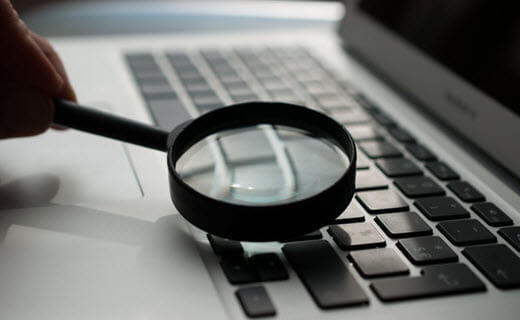- Candidates
- Login
- Set Up Account
- Create a Job Alert
- Search Tools
- Resources
- Employers

Why do employers want to check your background or even your credit? It could be for one of several reasons. For instance, if government security clearances are required for the job you are interviewing for, an employment background check may be required. For positions involving accounting or financial responsibilities, credit reports can provide insight into how financially dependable you are.
Find out more information on why background checks are a common part of the hiring process, what information is included in background checks, and what your rights are.
What is a Background Check?
A background check is a review of a person's commercial, criminal and (occasionally) financial records. Background checks are quite common; in fact, some surveys show that up to 70 percent of employers require employees to undergo background checks before hiring.
Why Employers Conduct Background Checks
There are many reasons why background checks are commonly used in hiring for all sorts of positions, from hourly to staff.
The employer may want to make sure you are telling the truth. It's estimated that up over 40% of resumes can contain false or tweaked information, so, employers want to ensure that what they are getting in an employee is what they were promised. (Once hired, an employer may tout an employee's qualifications — if it is revealed that these qualifications are false, it reflects poorly on the employer.)
The employer may perform a background check to find out whether you actually graduated from the college you said you did or to confirm that you worked at your previous employer(s) during the time stated on your resume or your job application.
These checks can also be used to protect employers from liability issues — if employees behave poorly, employers can sometimes be held responsible for negligence, or failing to do the research required. That is, if a bus company hires someone with a poor driving record, they can be held responsible if the driver gets into a crash; the expectation is that a bus company should check the driving records of any candidate before hiring.
Employers Must Ask Before Doing a Background Check
Before doing a background or credit check, employers must request and receive written permission from you to do the check. If anything in the reports leads to the company deciding against hiring you, they are required to inform you and give you a copy of the report. These rules are regulated by the Federal Trade Commission (FTC) and are meant to protect you. For instance, perhaps something that turns up in your background check is incorrect—having access to the report will allow you to get in touch with the necessary organizations and agencies to correct the error.
While some information on your background check may be of legitimate concern to employers, these checks cannot be used as an excuse to discriminate. Employers must request background checks of all applicants equally—that is, it would be illegal to check the criminal records of male job candidates but not female.
And, employers cannot use background information to discriminate. Contact the Equal Employment Opportunity Commission (EEOC) if you suspect the background check was used in a discriminatory way. It is discrimination to make a hiring decision based on race, national origin, sex, religion, disability, genetic information, and age (for candidates 40 or older).
Employment Background Check Timing
Many employers conduct background and reference checks during the hiring process, prior to offering a candidate the job. However, in some cases, a job offer may be contingent upon the results of the background check. That means the offer could be withdrawn if the organization finds negative information.
If the checks aren't finished before your start date, you could lose your job. Reference checking firm Allison and Taylor reports that "Many employment agreements and contracts include a stipulation that says the employer can hire you with a 90-day probation period. During this time, they will not only evaluate your job performance but, in some instances, will do background and reference checks. During this time, if the results are unsatisfactory, they have the legal right to fire you."
Information Included in a Background Check
Background Check Information
What's included in an employee background check? The Fair Credit Reporting Act (FCRA) sets the standards for screening for employment. The FCRA defines a background check as a consumer report. Before an employer can get a consumer report or run a credit check for employment purposes, they must notify you in writing and get your written authorization. In some states, there are limits on what employers can check.
Employment History Verification
Your employment history includes all the companies you have worked for, your job titles, and the dates of employment and salary earned at each of your jobs.
An employment history verification is conducted by an employer to confirm that the employment information included on your resume and/or job application is accurate.
This article is based on U.S. information. It is not legal advice and is for guidance only. Check with your legal counsel for the most relevant and up to date information.